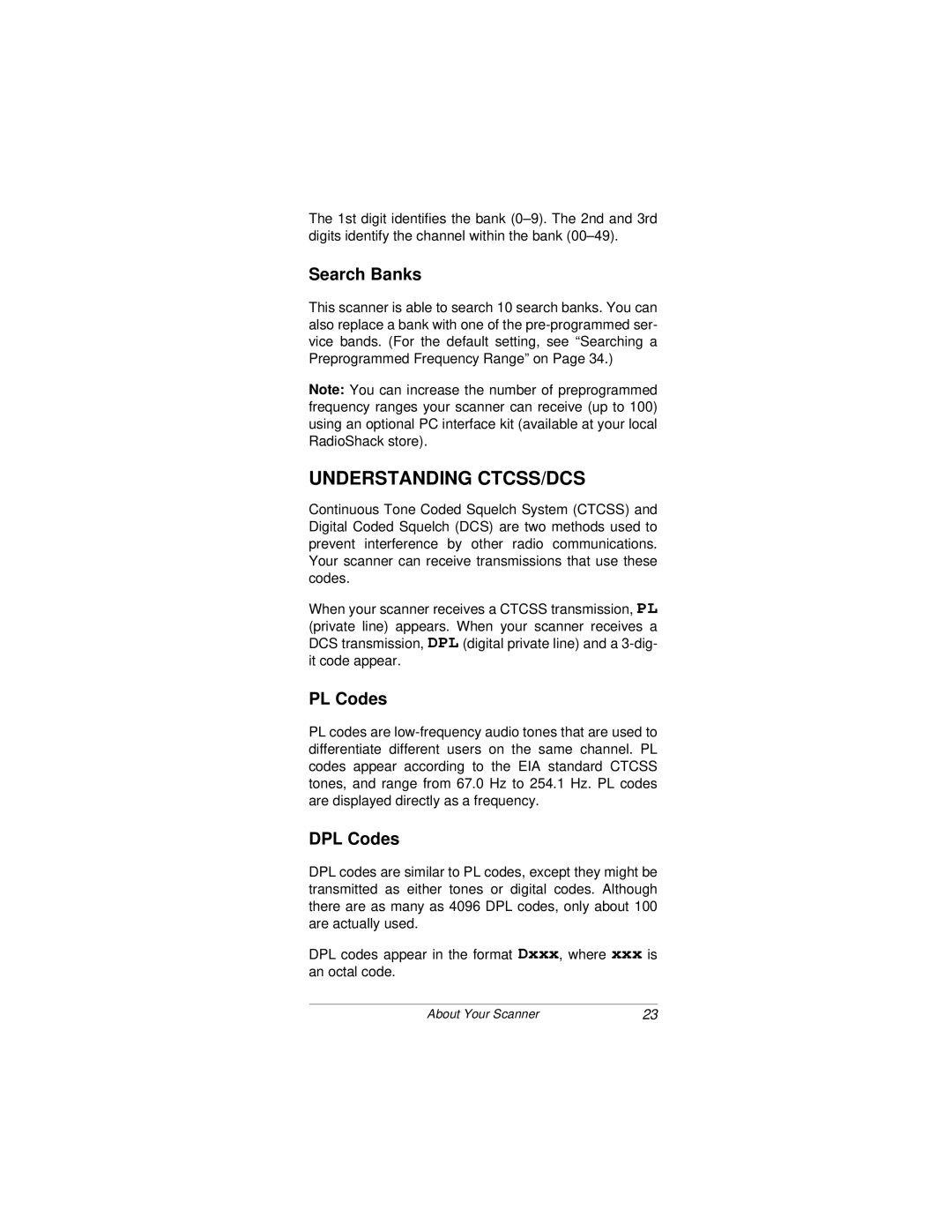The 1st digit identifies the bank
Search Banks
This scanner is able to search 10 search banks. You can also replace a bank with one of the
Note: You can increase the number of preprogrammed frequency ranges your scanner can receive (up to 100) using an optional PC interface kit (available at your local RadioShack store).
UNDERSTANDING CTCSS/DCS
Continuous Tone Coded Squelch System (CTCSS) and Digital Coded Squelch (DCS) are two methods used to prevent interference by other radio communications. Your scanner can receive transmissions that use these codes.
When your scanner receives a CTCSS transmission, PL (private line) appears. When your scanner receives a DCS transmission, DPL (digital private line) and a
PL Codes
PL codes are
DPL Codes
DPL codes are similar to PL codes, except they might be transmitted as either tones or digital codes. Although there are as many as 4096 DPL codes, only about 100 are actually used.
DPL codes appear in the format Dxxx, where xxx is an octal code.
About Your Scanner | 23 |
